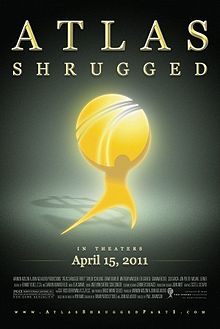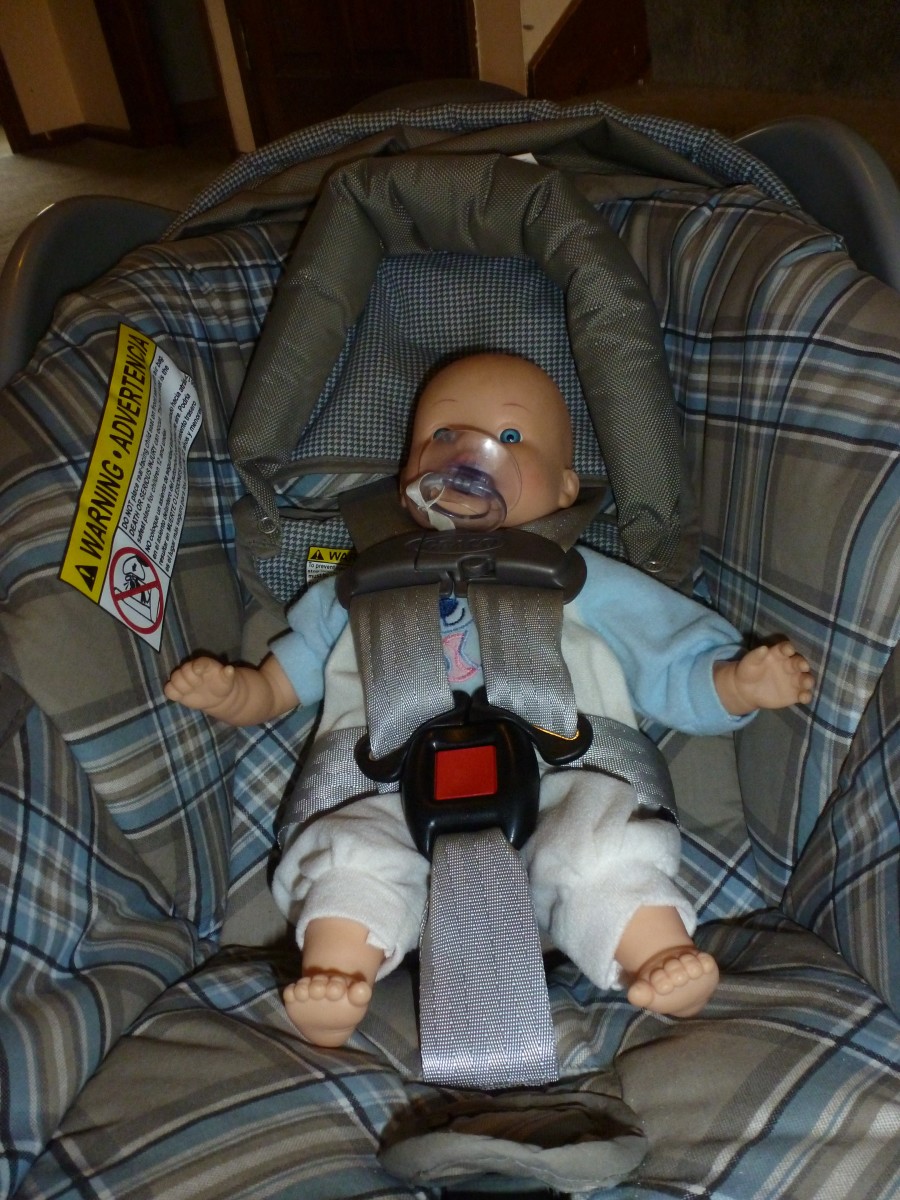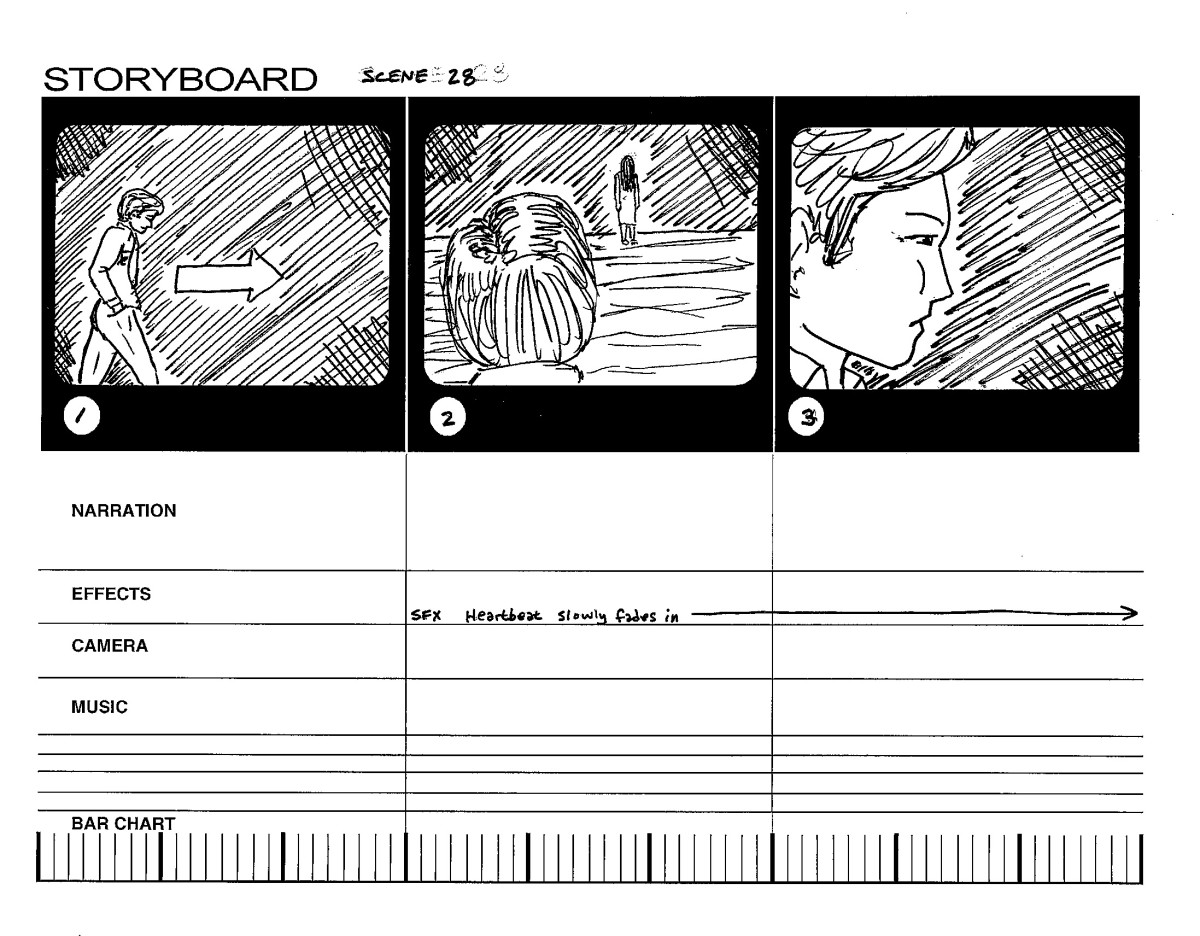Saving a Seat for John Galt: The Atlas Shrugged Movie and Social Metaphysicians as part of the Neurotypical Crowd
Yesterday, my daughter and I attended opening night of the Atlas Shrugged movie. We had to plan this outing carefully. I bought the tickets in advance on Fandango, to make sure they wouldn't be sold out. I had Lawrence, my chimp sitter come in on a Friday afternoon, and I paid him for a whole day's worth of sitting (nearly six hours) so that I could get ready, and pick my daughter up from school and so that we could drive nearly two hours to a far away city, eat dinner on the way, and arrive more than an hour in advance of the show, so that we could get really good seats, because they don't have assigned seating.
I have to tell you this, so that you will understand my context, when I tell you the rest of the story. Please understand that this showing was important to me, and that I paid with my time and my money for the right to select the exact seats for me and my daughter.
Even though the tickets cost less than twenty dollars, the whole outing was around two hundred dollars, something I can ill afford, and certainly a luxury that I do not allow myself every day.
Atlas Shrugged Movie poster

Moochers, theatre seats, college tuition and the laborers in the vineyard
When people see that you have something, they don't always understand what it took for you to get it. That accounts for why sometimes, they are graceless in the way they expect you to give it up. Ayn Rand called such people moochers.
Here are a few examples: your parents save money so that you can go to college. But when the time comes for you to go to college, you are charged full price, and people whose parents didn't save for them to go to college are given financial aid out of taxes that your parents paid. Then you end up having to go to a second rate college, while people who have no money go to an Ivy League school.
Or how about this: You pay for tickets, you arrive early to the theatre, and you sit in the front row, but there is a set of seats that are cordoned off, which you assume are for VIPs or people who paid extra. But when it turns out that the room is overbooked, they let the people who came late and bought tickets at the last moment at the regular price sit in front of you in those extra seats.
That happened to me once, and I swore it would never happen again.
Or how about this: Some liberal employer hires laborers to work in his vineyard. He tells them all they will get minimum wage for working a full day. But some people come early and some people come late, and some people don't show up until two minutes before quitting time, and at the end of the day, he pays them all exactly the same: minimum wage for a full day's work. And when the people who worked a full day complain about it, he tells them he can do what he wants with his money. And they say: Okay, but next time we'll come late, too, cause we're not stupid, you know! (In case you're wondering, that's the parable of the laborers in the vineyard from the New Testament, Matthew 20:1–16.)
Books by Ayn Rand
Sitting Pretty
Sword and I selected two seats in the middle section of the theater, one seat in from the aisle. I sat next to an empty seat by the aisle, and Sword sat on the other side of me. We came in as soon as seating was allowed. Little by little the hall started to fill, until our section was pretty much full, except for a seat on the other side of Sword and a seat next to me on the aisle. By this time, people had turned off the expensive new cell phones they had been using to look up the cast profiles of every actor.
"How come you don't have a fancy cell phone like that that hooks up to the internet?" Sword asked me.
"Because I don't have that much money."
"Yes, you do," she said, and began to question me about my net worth. Fortunately, we were speaking in Hebrew so nobody could understand our private conversation.
"Everybody here is old," she said. It was true. There were not too many young people, and no children at all. But just then a younger woman with a boy who looked to be eleven or so came up the aisle and as they passed by us and went further up the aisle to the higher seats, I pointed them out to Sword. "See, there's a boy about your age."
"His mom probably made him come."
A little later, the woman and the boy came back down and made their way in our direction.
By now, the screen was not black anymore, and they were showing music videos. One featuring Jennifer Lopez gyrating to a very stirring beat was playing as the woman with the boy stopped by us. The woman turned to me: "Is this seat taken?" she asked, pointing to the seat next to me by the aisle.
"No," I said. "It's not."
"What about the other seat, over there?" she asked, pointing at the empty seat by Sword. "Is it taken?"
"I'm not sure," I said, because I didn't know if the people next to it, on the other side of Sword, were saving it for someone.
She asked, and it turned out the seat was free. So then she directed her son to sit next to Sword and she sat next to me. I was fine with this arrangement. I thought it was nice that a boy her age was sitting next to Sword, and the woman next to me seemed pleasant enough. She was slender, so she didn't take up more than her fair share of the space. I would have been very happy for things to remain as they stood.
But then the woman turned to me and started to ask: "Do you think that maybe..."
"What?" I asked.
"Oh. Never mind." And she went back to her silence.
What does she want? I wondered.
The movie was about to start. Suddenly the woman turned to her son and said: "Josh, would you like to move to those seats down there, where we can sit together?"
Was it a question or a statement? Her tone was kind of neutral, and her son treated her utterance as if it were a speech act. He didn't reply. He just got up and off they went. There were in fact plenty of empty seats in the lower section. The hall was not full.
Oh, well, I thought. Too bad the boy didn't stay. It would have been nice for Sword. But that woman was a bit rude. If she had wanted to sit next to her son, why didn't she select a place where there were two empty seats next to each other, instead of making such a big production out of it?
The Big Fans
Just as the movie was beginning, a big, overweight man came by and asked: "Are these two seats taken?" And he, too, pointed at the seat by Sword and the one by me.
"No, they are not taken," I said a bit crossly.
The man sat down. "My wife will be here shortly," he said to me.
"Okay," I said, perplexed. Why do I need to know this? I wondered. Wasn't he violating a Gricean Maxim by providing me with extraneous information?
But when his wife appeared, and the man remained seated, I realized that Sword and I would have to stand up to allow the very, very large woman to squeeze past us. However, the man apparently did not expect us to just stand there, and eventually, after some hesitation, he moved to the seat beside Sword, while his wife took the aisle. They spent the entire movie passing a huge tub of popcorn between them, and they kept knocking my box of almonds off the armrest, where I had put it.
Every time somebody said "Who is John Galt?" the man laughed very loudly.
Picking Up on Non-Verbal Cues
By the time the movie ended, I understood what the other people had expected of me. They had wanted me and Sword to move one seat down, so that they could sit next to each other. They were trying to give me non-verbal cues and speech acts to tell me what they wanted, but they could not be bothered to explain it to me directly.
You see, I'm not stupid and I have good analytical skills, but I can't process social cues in real time. I wasn't trying to be uncooperative. If the woman with the boy had asked me to move, I would have. But she didn't ask. She just assumed that I would know what she wanted, and she was really ticked off by my selfishness when I didn't.
I could tell that they were all basing their behavior on some unwritten social compact, but I was slow on the uptake. I wonder if they went home and complained about the how certain Ayn Rand fans have "emotionally stunted growth", while leaving their own motives unexamined.
Why is it that when someone wants a favor from someone else, not only do they not come right out and ask, they also act as if the other person is a bad guy for not giving them that favor as if it were their due?
The Movie: Lillian Rearden steals the show
So how was the movie? I did enjoy certain parts of it. All the parts with Lillian Rearden in them were great. Rebecca Wisocky played her so well!
Taylor Schilling and Grant Bowling as Dagny Taggart and Hank Rearden, respectively, were also good, but they weren't given enough interesting material to work with.
I'm not going to review the whole movie, but here are a few remarks that might be helpful to the initiated. Since this is only part one, and really only deals with a very small portion of the plot of the novel, more care could have been given to the characters that did appear, and less time might have been given to elements that only come to make sense in later parts of the book.
Rearden's moral confusion should have been given more screen time. Rearden is a person with conservative social values who ends up "sinning". In order for this to be real to us, we should have had a better view of his inner struggle, including evidence that he damns himself for not living up to his own standards. Then someone should help explain how conservative social values are very similar to socialist economic values.
For the uninitiated, people who have never read Rand, this would have been something that could have held their attention. Instead, Rearden is seen breaking his marriage vows with casual ease.
My daughter turned to me after that brief love scene, whose take on Randian sex was very, very tame, and asked in Hebrew: "Why is he being disloyal to his wife?"
"Because she doesn't love him," I answered softly, but clearly the answer was inadequate.
The scene where Francisco explains sex to Rearden would have been so helpful! But... real people don't talk about such things explicitly. Only characters in an Ayn Rand novel would do that! In real life, people exchange subliminal, non-verbal cues about everything from what seat someone should occupy in the theater to who should sleep with whom, to how we recognize "good" and "evil". At least, everyone who is neurotypical does this.
There are some things we don't talk about
Talking explicitly about good and evil is what Ayn Rand does best. She breaks a lot of taboos doing this, and that is why her characters seem unreal to people who are "well-socialized".
It took me years to realize that the nasty epithet "social metaphysician" that Rand used to hurl at people that she did not like tended to single out the same characteristics that are known as being "neurotypical" in the autistic community.
Some things go without saying. Well, for most people, but not for all of us.
On the way home, I examined my own motives in regard to seating arrangement. Was I being a jerk by not moving? I mean, I didn't know that's what they wanted until it was too late, but if I had known what would I have done? And why was there an empty seat next to me anyway? Who was I saving it for?
Who is John Galt?
The Price We Pay for What We Have
Like the prophet Elijah, John Galt did not come to claim his seat. And so the seat remained empty.
But what would have happened if any decent Ayn Randian hero had walked into that theater and wanted a pair of seats adjoining each other on our row? Would they have hinted around and tried to make me feel guilty? Or was there another way that the problem could be solved?
I realize that those were city people, used to dealing with other city people, and that in a place where space is scarce people behave differently from where space is plentiful. If I am late to the local theater in our neck of the woods, I sit where I want, because the theater is almost always empty of people. But if there were a shortage of places, I would never dream of trying to make people move without even asking them to.
I also realize that those city people had no idea how far I had to travel to get there and how much I had had to pay for the privilege. But does that really matter? Just because they did not know how much it had cost me, does that mean they should assume it was worth nothing? If they believe in Ayn Rand's values, shouldn't the market decide?
Imagine Dagny and Rearden arriving at the theater in Springfield in separate cars, so as not to let anyone know about their sinful relationship. They come at the last moment, and they see the two empty seats next to Sword and me.
"Are those seats taken," I can see Dagny asking me, while Rearden looks guilty because he doesn't want anyone to know that he is with her.
"No, they are not," I answer crossly.
Dagny looks me up and down shrewdly. She takes in what Sword and I are wearing, the fact that I don't have an expensive cell phone. Finally she says: "How much did it cost you to get these seats?" Dagny is a realist. She knows that the price of getting those two seats includes many other factors besides the face value of the movie ticket.
"Two hundred dollars," I reply.
"That much?" she considers. "And how much would it take to make you move one seat over?"
"What?"
"I want you to move one seat over," she says. "Of course, you have every right to refuse me. But... I could offer you one thousand dollars for the privilege of sitting next to the aisle with my friend here." (Rearden skulks about trying to look inconspicuous.)
And supposing I were so stupefied by her offer as to remain speechless, she might have added: "Write your own ticket. How much for these two seats?"
Now that is what a real heroine does! How come I didn't meet someone like that at the theater last night?
© 2011 Aya Katz








